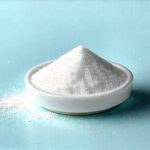The intricate relationship between our gut microbiome and overall health is rapidly becoming one of the most exciting areas of scientific research. For decades, we’ve understood that diet plays a crucial role in providing the building blocks for strong bones – calcium, vitamin D, phosphorus, magnesium, amongst others. However, it’s now increasingly clear that how well we absorb these essential minerals isn’t solely determined by how much we consume; the bustling community of microorganisms residing within our digestive tract significantly impacts this process. This complex ecosystem influences not only mineral solubility and transport but also modulates inflammation and immune responses, all of which can profoundly affect bone density and skeletal health. Failing to consider the gut microbiome as an integral part of mineral metabolism is like trying to build a house with incomplete plans – we’re missing a critical component.
Traditionally, bone health has been viewed through the lens of dietary intake and hormonal regulation. While these remain vital factors, overlooking the gut microbiome presents a significant gap in our understanding. The composition of our gut flora can be heavily influenced by various factors including diet, antibiotics use, stress levels, and even genetics. A disrupted gut microbiome – often termed dysbiosis – can lead to impaired mineral absorption, increased inflammation, and ultimately, compromised bone health. Conversely, a diverse and thriving gut ecosystem supports efficient nutrient uptake, reduces inflammatory burden, and fosters an environment conducive to strong, resilient bones. This is not simply about supplementing with more minerals; it’s about cultivating an internal environment that allows us to utilize those minerals effectively.
The Gut Microbiome’s Impact on Mineral Solubility & Absorption
The process of mineral absorption isn’t straightforward. Many minerals exist in forms that are poorly absorbed by the body and require specific conditions – such as acidity levels, chelating agents, or enzymatic activity – to become bioavailable. This is where gut bacteria play a pivotal role. Certain bacterial species can directly influence the solubility of minerals like calcium, magnesium, and iron, essentially preparing them for absorption in the small intestine. For example, fermentation processes carried out by gut bacteria produce short-chain fatty acids (SCFAs) such as butyrate, propionate, and acetate. These SCFAs not only nourish the cells lining the intestinal wall but also lower the pH of the gut environment, enhancing the solubility of calcium phosphate – a common form of calcium that is often poorly absorbed in alkaline conditions.
Furthermore, some bacteria synthesize vitamin K2 (menaquinone), which is essential for directing calcium to bones and teeth rather than accumulating in soft tissues. This vitamin plays a crucial role in activating osteocalcin, a protein responsible for binding calcium to the bone matrix. A deficiency in vitamin K2 can lead to calcium deposition in arteries and other inappropriate locations, even with adequate calcium intake. The gut microbiome isn’t just passively involved; it actively participates in creating an environment that promotes efficient mineral absorption. It’s a dynamic interplay where bacterial metabolism directly influences nutrient bioavailability.
The impact extends beyond solubility. Gut bacteria also influence the expression of absorption transporters – proteins responsible for moving minerals across the intestinal wall and into the bloodstream. The microbiome can modulate these transporters, increasing or decreasing their activity depending on its composition and metabolic output. A healthy microbiome promotes a balanced absorption process, ensuring that we’re obtaining the maximum benefit from the minerals in our diet. Conversely, dysbiosis can lead to impaired transporter function and reduced mineral uptake, even with sufficient dietary intake. Understanding gut inflammation is key to understanding these processes.
The Role of SCFAs in Bone Metabolism
Short-chain fatty acids (SCFAs) are metabolites produced when gut bacteria ferment undigested carbohydrates, primarily fiber, in the colon. These aren’t just waste products; they’re crucial signaling molecules that impact numerous physiological processes, including bone metabolism. Butyrate, in particular, has garnered significant attention for its role in promoting bone health. It’s a primary energy source for colonocytes – the cells lining the colon – and supports gut barrier integrity, preventing “leaky gut” which can trigger systemic inflammation.
- SCFAs improve calcium absorption by lowering intestinal pH.
- They stimulate osteoblast activity (bone-building cells).
- Butyrate has been shown to inhibit bone resorption (breakdown) by reducing the activity of osteoclasts – the cells responsible for breaking down bone tissue.
This dual action – promoting bone formation and inhibiting bone breakdown – makes SCFAs powerful allies in maintaining bone density. A diet rich in fiber, which fuels SCFA production, is therefore not only beneficial for gut health but also plays a vital role in supporting skeletal strength. Increasing dietary fibre intake gradually can help foster the growth of SCFA-producing bacteria, leading to improved bone metabolism over time.
Inflammation and Bone Loss: The Gut Connection
Chronic inflammation is a major driver of bone loss. Inflammatory cytokines – signaling molecules released by immune cells – can directly inhibit osteoblast function and promote osteoclast activity, accelerating bone resorption. Dysbiosis often leads to increased gut permeability (leaky gut), allowing bacterial components like lipopolysaccharide (LPS) to enter the bloodstream, triggering an inflammatory response.
The gut microbiome isn’t simply a passive bystander in this process; it actively modulates immune function. A diverse and balanced microbiome helps regulate the immune system, preventing excessive activation and reducing chronic inflammation. Specific bacterial species can produce anti-inflammatory compounds that dampen down the inflammatory response, protecting bone health. Probiotic supplementation – introducing beneficial bacteria into the gut – has shown promise in reducing inflammation and improving bone density in some studies, though more research is needed to determine optimal strains and dosages. The impact of irregular eating habits can also contribute to inflammation.
Dietary Strategies for a Bone-Healthy Gut Microbiome
Cultivating a healthy gut microbiome requires a holistic approach centered around diet. Here’s a step-by-step guide:
- Prioritize Fiber: Consume a variety of fiber-rich foods, including fruits, vegetables, whole grains, and legumes. Aim for at least 25-30 grams of fiber per day.
- Embrace Fermented Foods: Incorporate fermented foods like yogurt (with live cultures), kefir, sauerkraut, kimchi, and kombucha into your diet. These foods contain probiotics – live microorganisms that can help diversify the gut microbiome.
- Limit Processed Foods & Sugar: Highly processed foods, refined sugars, and artificial sweeteners can disrupt the gut microbiome and promote inflammation.
- Consider Prebiotics: Prebiotics are non-digestible fibers that feed beneficial bacteria in the gut. Good sources include garlic, onions, leeks, asparagus, bananas, and oats.
- Moderate Antibiotic Use: While antibiotics are sometimes necessary, overuse can decimate the gut microbiome. Only take antibiotics when prescribed by a healthcare professional and consider probiotic supplementation afterward to help restore balance. Meal frequency also plays a role in digestive health.
These dietary changes aren’t about quick fixes; they’re about fostering a long-term relationship with your gut microbiome, creating an internal environment that supports optimal mineral absorption and bone health. Remember that individual responses can vary, and it’s always best to consult with a healthcare professional or registered dietitian for personalized advice. Furthermore, consider how exercise impacts the gut microbiome as well!
It is important to note this information is for general knowledge and informational purposes only, and does not constitute medical advice. It is essential to consult with a qualified healthcare professional for any health concerns or before making any decisions related to your health or treatment.


















